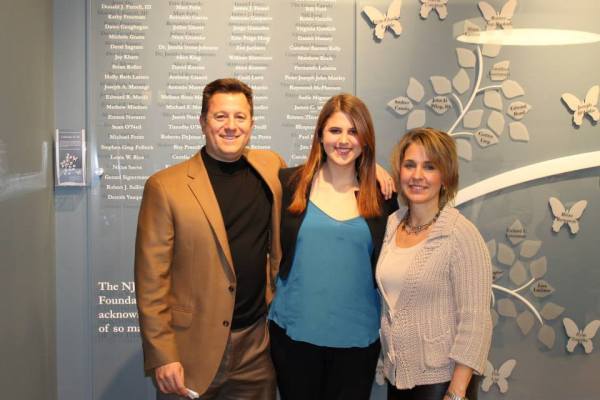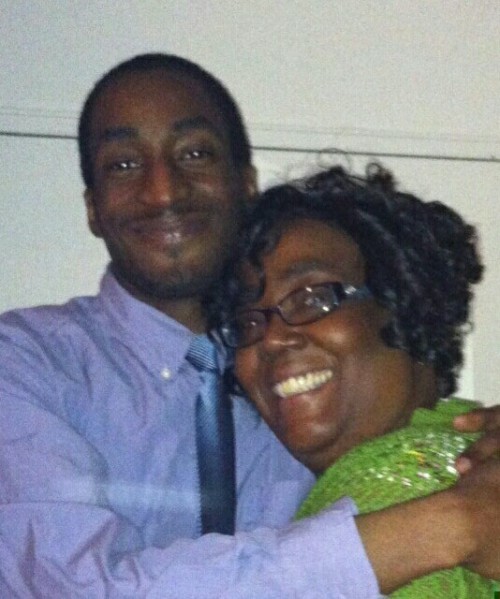I was born with a rare liver disease called Biliary Atresia, a condition in which there is a blockage in the tubes, or ducts, that carry bile from the liver to the gallbladder. Untreated, this disease can be fatal. So, as an infant, I underwent a Kasai procedure, which surgically bypassed my blocked ducts in order to prevent liver damage.
This procedure bought me a lot of time. Thirteen years, specifically. Thirteen years filled with regular child-like things such as play-dates with friends, summers spent at the local private swim club, the participation in activities such as dance, gymnastics, theatre, and tennis, and even vacations to places such as Disney World. There was nothing abnormal about my childhood besides the occasional doctor’s appointment, blood work, and having to take a few pills every day. But then again, every child has to go to the doctor, occasionally get blood work, and take medicine at some point whether it be to help cure a simple cold, or for more serious matters such as mine.
Things were going rather smoothly until a minor bump in the road during my year as a fifth grader. I ended up getting hospitalized for an unknown reason until it was determined that I had cholangitis. After just a few days in the Morristown Memorial Children’s Hospital, I regained my health and strength and was discharged.
Two years later, as a seventh grader, I was re-hospitalized for the same infection. I happily missed a couple of days of school, however, it was concluded that my health had taken a turn for the worst, and that things were only looking down from there. It was time we get a move on it and start investigating transplant centers.
 |
Sarah with her parents, Steve and Lisa Meyers
|
At the time of my transplant there were no pediatric liver transplant facilities in the state of New Jersey, so my family was forced to search elsewhere. At first, my family and I went to Mount Sinai Hospital in NYC, but after learning that the wait time for organs was much longer in the tri-state area, and that a split-liver or living donor would likely become one of the few options, my parents started researching other centers. They found that Jackson Memorial Hospital in Miami, Florida had an exceptional program and so we traveled down South for an evaluation. It was then determined that I was a prime candidate for a liver transplant, and I was quickly added to the overwhelmingly large UNOS waitlist.
One short month later we received a phone call. I was eating my strawberry-flavored Special K cereal in the kitchen, preparing for one of my final days of seventh grade. My mom answered the phone. It was one of the transplant coordinators on the other line. They had a match for me. She instructed us to hop on a plane as soon as possible.
I knew it was for the best, but it had only been one month and I couldn’t have yet been prepared for this major surgery. I needed more time, and I secretly hoped that the donor wouldn’t be a match. But, knowing that we had to travel to Miami, I ran upstairs to get my pre-packed bag that I had put together in anticipation for this day. My mom, dad, and I were on a Continental Airlines flight to Miami, Florida within the next two hours.
Well, it was a match, and just a few hours later, I was in a hospital gown, sitting on the phone with my best friend while my family surrounded me. A transport nurse came in and told me it was time. I told my friend I had to go and that I’d talk to her later and hung up. What else was I supposed to say?
In the pre-op room, I was surrounded by my mom, dad, and grandmother. Soon enough, the anesthesiologist came out and told me it was time to say goodbye for now and that he’d take me into the operating room. I received a hug and a kiss from each family member, and waved goodbye, half-smiling, unsure of what other expression to give. I didn’t want them to think that I was scared. I had to be brave, for them. They had enough to deal with.
The anesthesiologist injected a calming medication into my IV. It was the first of many to make me feel like I was flying. But I still felt nervous, so he injected a bit more. I felt calm now, as calm as I could feel given the situation. I highly doubt that anyone has ever gone into an organ transplant totally Zen, but hey, if you have, then good for you! The anesthesiologist talked to me about school and his kids as he tried to sway my attention from the impending surgery.
As I was rolled into the OR, I was surrounded by several people who would be assisting with the surgery. I had complete faith in them all, especially my incredible surgeon, Dr. Kato, however, that didn’t mean that I wasn’t still scared. You never know what could happen in an operating room.
I was transferred from my rolling bed onto the warm operating table. It was a hard, flat surface, however, the heat made it mildly inviting. I glanced up at the fluorescent lights above and my mind went totally blank. Then, as the anesthesiologist allowed a steady stream of anesthesia flow into my veins, I decided to play the game I always play when I get put under. I tried to fight the anesthesia and see how long I could last. But it was only a couple of seconds and I was out like a light.
Six hours later I woke up in the ICU with several IVs and a tube down my nose. None of this was comfortable, but I was still delusional enough to not let it bother me. Soon, my parents returned to the room and were thrilled to see me awake and well.
I spent two days in the ICU until I was transferred up onto the regular transplant floor. Now, I thought the nurses in the ICU were tough, but the ones upstairs were hardcore and would not let me get away with just lying around all day long. They wanted me up and walking, practicing my breathing with this mechanism they had given me, and going to the bathroom normally. I couldn’t get away with anything.
Honestly, my biggest concern post-surgery was getting the darn tube out of my nose. I think I asked the nurses about it almost every time they came in. I’m not a persistent person like that, but I wanted this tube
out.
Eventually the tube was removed, my breathing got stronger, and I was walking in circles around the transplant floor like it was my job. After a few weeks, I was discharged and got to live in an apartment in Miami with my family until I was permitted to fly home. Not a bad deal, huh?
Approximately three months post-transplant, I was told that I could return home. Once back in New Jersey, I began home-schooling until I was strong enough to return to school.
My transplant has taught me to be grateful for the life that I have, and not to take it for granted.
All I know about my donor is that he was a nine-year-old boy from Louisiana. I’ve struggled with this fact for a long time. Wondering what makes me more worthy of life than he, but I’ve realized that I cannot think that way. Instead, I’ve realized that I must be thankful for my second chance, and to make something of myself. I want to be able to honor the young boy who passed and whose organ I received by living a long, fulfilling life. I want to be enough for the both of us. Not only must I live for myself, but I must live for him as well. His death will never be left in vain, for he saved the lives of many, and has given me the ability to live on and keep his memory alive. I truly believe that this boy lives on within me.

